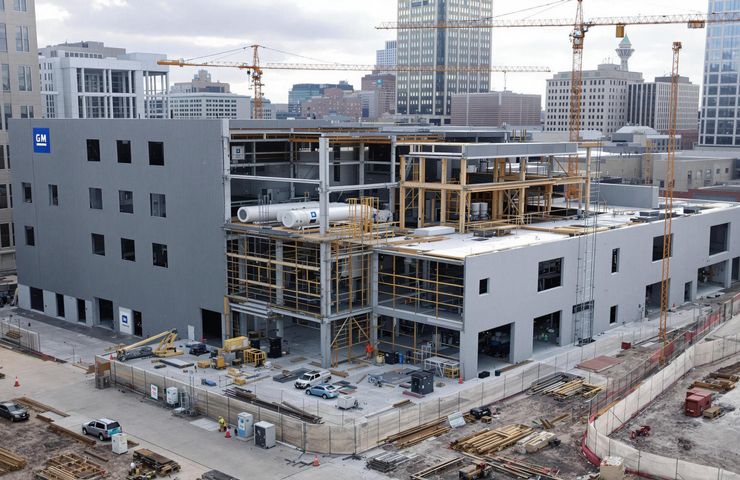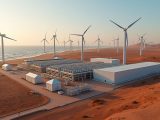
GM Halts Detroit Hydrogen Fuel Cell Plant Amid Market Uncertainty
May 15, 2025GM Hits Pause on Detroit Hydrogen Fuel Cell Plant
In a move that signals a shift in strategy, General Motors (GM) has pressed pause on its highly anticipated hydrogen fuel cell manufacturing facility in Detroit, Michigan. First announced back in September 2024, the $55 million factory was set to breathe new life into the old State Fairgrounds site and create roughly 300 skilled jobs in the process. Spanning nearly 292,500 square feet, the facility was expected to become a major player in GM’s push toward alternative fuels. But come May 2025, those plans were officially put on hold—leaving many to wonder what this means for the future of fuel cell technology in the U.S.
Why GM Is Pumping the Brakes
So, why the sudden change of heart? Well, it comes down to uncertainty—both in the market and in the infrastructure behind hydrogen. While GM made big strides through its longstanding collaboration with Honda—a partnership that’s been going strong since 2017—they’re now taking a closer look at how realistic it is to go big on hydrogen right now. One GM spokesperson, speaking off the record, summed it up like this: “We still believe hydrogen has a big role to play in clean mobility long-term, but in the short run, we’ve got to rethink how fast and how big we go.” That cautious note echoes across the industry. Between red tape, technology costs, and slow progress on hydrogen infrastructure, a lot of companies are playing it safe for now—and GM is no exception.
Detroit’s Hydrogen Hopes on Hold
Detroit, the birthplace of the American auto and home to countless automotive milestones, was gearing up to take center stage in the next era—this time as a hub for industrial decarbonization. Locals had high hopes the new plant would be a launchpad for green jobs and innovation, bolstering the city’s ongoing transformation into a next-gen manufacturing heavyweight. The site—a piece of historic fairgrounds unused since 2009—was more than just real estate. It was part of Detroit’s bigger vision to mix economic renewal with sustainability. But, for now, that vision is on the back burner.
A Missed Milestone for Piston Automotive
This wasn’t just GM’s show. Piston Automotive, a proud Detroit-born supplier that’s been in the game since 1994, was lined up to be a key partner. They’ve been expanding into alternative fuel component assembly, betting big on the future of clean tech. The project’s suspension doesn’t necessarily end that partnership—but it does put their shared plans on ice. What was supposed to be a defining chapter for both companies is now a question mark in the margins.
Fuel Cells vs. Batteries: Still Anyone’s Game
Globally, the momentum behind fuel cell technology is undeniable—especially in places like Japan, South Korea, and parts of Europe. Giants like Toyota and Hyundai are all in. But here in the U.S.? The story’s a bit more complicated. While battery-electric vehicles are clearly dominating the landscape, hydrogen still has a shot, especially for big rigs, long-hauls, and other heavy-duty uses where quick refueling and high power matter. Still, GM’s decision makes one thing clear: hydrogen isn’t a one-size-fits-all solution, and without better infrastructure in place, even the biggest automakers have to pause and rethink.
A Moment, Not the End
Detroit’s story is far from over. It’s a city that’s always evolved—from horse-drawn carriages to V8 engines, and now to cutting-edge clean tech. This pause from GM? It’s just another beat in an ongoing transformation. As the hydrogen economy continues to grow up, moments like this might turn out to be just as valuable as the breakthroughs. After all, building something that lasts takes more than just big dreams—it takes the patience to get it right.



 With over 15 years of reporting hydrogen news, we are your premier source for the latest updates and insights in hydrogen and renewable energy.
With over 15 years of reporting hydrogen news, we are your premier source for the latest updates and insights in hydrogen and renewable energy.
I’m a renewable hydrogen supporter. Getting it correct for the future would be fuel cells being fueled with renewably derived hydrogen. My belief is that the planet will depend on that aspect for the future. And, it does not mean any hydrogen made via nuclear reactors. That is not a sustainable renewable source. No to nukes for hydrogen. Thanks for your work!
This Solar Republican says: How about we follow India’s path and require all Wind and Solar Farms to Have Electrolyzers and make Green H2 with 10% of their power and definitely with any power that they plan on Flushing because they are overpowering the Grid? I see All Wind and Solar Farms in CA and TX with 4 Mandated Additions to become Reliable:
2h Backup Batteries, Electrolyzers, H2 Storage Tanks, Flex GE CCNG/H2 50% Backup Generators..